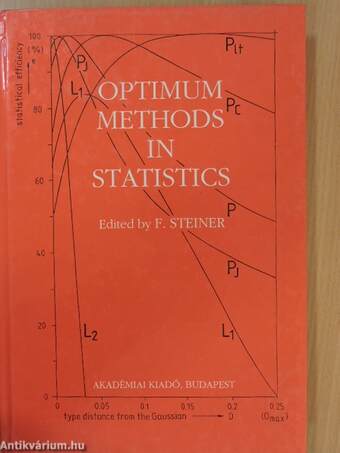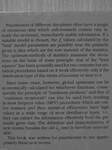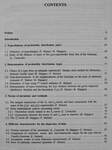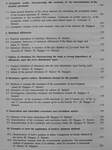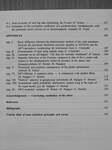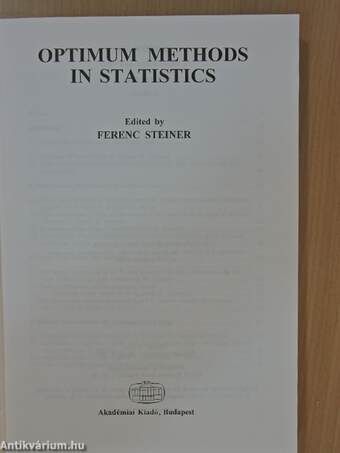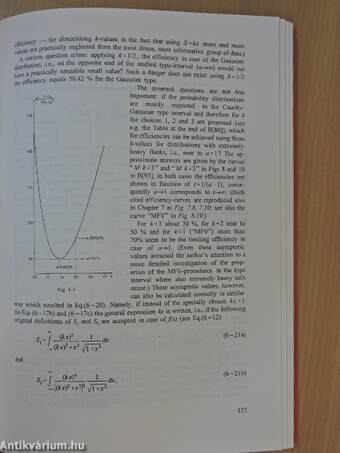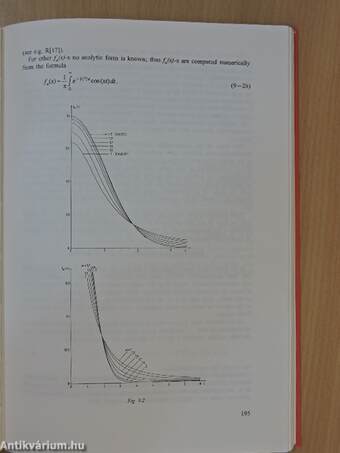1.054.457
kiadvánnyal nyújtjuk Magyarország legnagyobb antikvár könyv-kínálatát

VISSZA
A TETEJÉRE
JAVASLATOKÉszre-
vételek
Optimum Methods in Statistics
| Kiadó: | Akadémiai Kiadó |
|---|---|
| Kiadás helye: | Budapest |
| Kiadás éve: | |
| Kötés típusa: | Fűzött kemény papírkötés |
| Oldalszám: | 370 oldal |
| Sorozatcím: | |
| Kötetszám: | |
| Nyelv: | Angol |
| Méret: | 24 cm x 17 cm |
| ISBN: | 963-05-7439-X |
| Megjegyzés: | Fekete-fehér ábrákkal. |
naponta értesítjük a beérkező friss
kiadványokról
naponta értesítjük a beérkező friss
kiadványokról
Fülszöveg
Practitioners of different disciplines often have a jungle of erroneous data which unfortunately contain only latently the necessary, immediately usable information. If a suitable model is chosen, the g. values calculated by the "best" model parameters are possibly near the primarily given x. data which are the row material of the statistics. The optimum-methods of statistics minimize the deviations on the basis of somé principle: that of the "least squares" has been generally used for two centuries but statistical procedures based on it work effectively only if the distribution type of the errors is Gaussian or near to it. Since somé years, however, global optimums can be economically calculated for whichever functions, consequently the principle of "minimum products" and that of "maximum reciprocals" can alsó be used both resulting in most frequent value (MFV) procedures which are outlier resistant and their statistical efficiencies have high values in a wide rangé of error... TovábbFülszöveg
Practitioners of different disciplines often have a jungle of erroneous data which unfortunately contain only latently the necessary, immediately usable information. If a suitable model is chosen, the g. values calculated by the "best" model parameters are possibly near the primarily given x. data which are the row material of the statistics. The optimum-methods of statistics minimize the deviations on the basis of somé principle: that of the "least squares" has been generally used for two centuries but statistical procedures based on it work effectively only if the distribution type of the errors is Gaussian or near to it. Since somé years, however, global optimums can be economically calculated for whichever functions, consequently the principle of "minimum products" and that of "maximum reciprocals" can alsó be used both resulting in most frequent value (MFV) procedures which are outlier resistant and their statistical efficiencies have high values in a wide rangé of error distribution types, i.e., they can extract the information effectively from the primarily given data. The definition and characterization of new norms (besides the old L2 one) is therefore unavoidable. This book was written for practitioners to use appropriately these new norms. VisszaTémakörök
Megvásárolható példányok
Nincs megvásárolható példány
A könyv összes megrendelhető példánya elfogyott. Ha kívánja, előjegyezheti a könyvet, és amint a könyv egy újabb példánya elérhető lesz, értesítjük.



